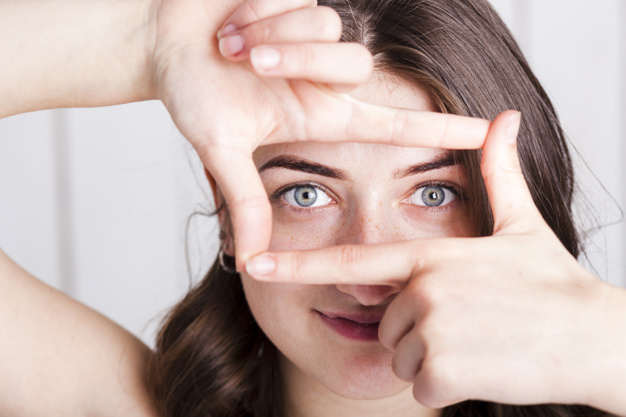To maintain the quality of life, one of the most important things you can do is protecting your eye-sight. We are now living in an era where screens dictate what we do whether it’s booking an appointment, studying, or working. And if you are like me, who is overjoyed with getting Spectrum Maine, you must be glued to the TV to catch all the best entertainment.
However, excessive usage of the screen can take a toll on the eye-sight. Plus, as we age, our eye-sight becomes weaker. On top of that, if you have a medical condition, it can deteriorate your sight rather quickly.
If you start acting upon some tips early on, it’s possible to protect your eyes and prevent vision loss.
1: Focus On Your Diet
When it’s a matter of health, food cannot be neglected. Choose foods rich in Vitamin A and C, antioxidants, and omega 3 fatty acids. The best sources include leafy green veggies and fish.
Inadequate food, excessive consumption of saturated fats, and alcohol cause free radical reactions harming the macula. It’s the central part of the retina. A high-fat diet can also give birth to deposits constricting the blood flow in arteries.
Our eyes have their own nutritional needs. It’s important to provide a balanced combination of nutrients to keep your eyes healthy.
2: Cut Back on Your Screen Time
Limit the time spent in front of a screen. These devices tend to have a significant impact on not just your mental healthy but physical health as well. Looking at the screen places strain upon the eyes. This could mean you will need a pair of reading glasses or suffer from chronic headaches because of muscular strain.
It’s best to bring a change in your lifestyle before you compromise on your sight. While you are using the screen at work, take a 10-minutes break at least once every hour. This will reduce eye strain.
3: Use Screen Protectors
To safeguard your eyes from the damaging rays of the blue light, use light filter glasses. They prevent wavelengths from penetrating the lenses. These protectors are highly beneficial for those who spend a lot of time in front of the computer.
4: Look for Warning Signs of Vision Changes
Don’t neglect the warning signs by your eyes telling you your vision is changing. These signs include hazy vision, double vision, difficulty seeing in low light conditions, and more. Other signs include floaters, red eyes, pain, and swelling in eyes. Visit your eye doctor as soon as you experience these changes.
5: Schedule an Annual Exam
Even if you think your eyes are fine, schedule a thorough eye exam to stay on the safe side. This is one way of determining the risk of developing a major eye disease as well. Early detection saves you from the trouble later on.
If you already wear prescription glasses, an eye exam will keep you updated with your vision.
6: Wear Sunglasses
Never look in direct sunlight or you could be at the risk of developing cataracts. UV blocking sunglasses delay this risk.
Sunglasses don’t just look good, they prevent retinal damage and protect the delicate eyelid skin, preventing the formation of wrinkles and reducing the chances of developing skin cancer around the eyes.
So next time you invest in a pair of sunglasses, make sure they are 100% protected against UV-A and UV-B rays.
7: Stay Fit and Exercise
By exercising and maintaining weight, you can actually help your eyes, let alone your waistline. Obese often develop diabetic retinopathy. It’s a condition in which excess sugar circulates in the bloodstream and injures the delicate walls of the arteries. It further causes the arteries in the retina to leak blood and fluid into the eyes, harming the vision.
If you are diabetic, you need to be extra careful about your health. Get your blood sugar level checked and exercise regularly to stay fit and healthy.
8: Keep Your Hands and Lenses Clean
Eyes are vulnerable to infections and germs. Even the little things that irritate the eyes can affect the vision. Make sure your hands are clean before touching the eyes or handling your lenses.
Don’t forget to disinfect your lenses after use. Replace them as and when advised by the manufacturer.
9: Some Other Tips to Follow
To further protect your eyesight, here are some tips to follow on a daily basis:
- Keep the PC screen within 20 to 24 inches of your eyes
- The top of the screen must be below the eye level
- Adjust the brightness of the screen
- While using the screen, blink frequently
- After every 20 minutes, take a break and focus on an object 20 feet away from you for 20 seconds.
- If you have dry eyes, use lubricating eye drops
As you observe these tips, you should be able to keep your vision protected and maintained for a long time.
